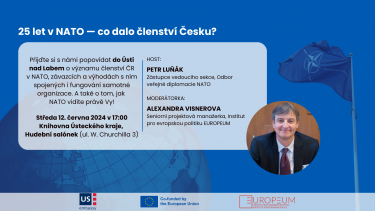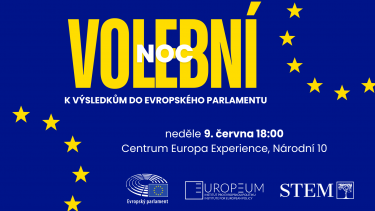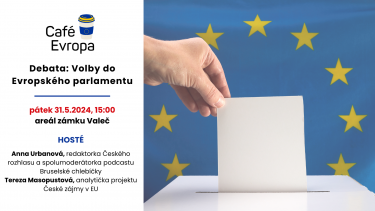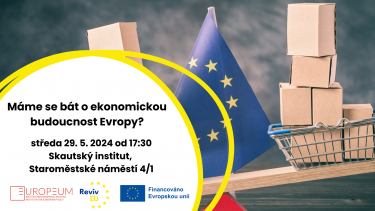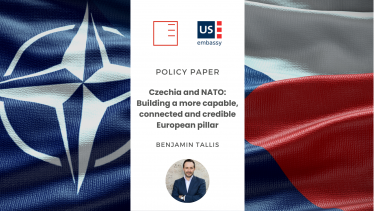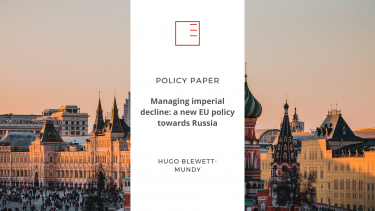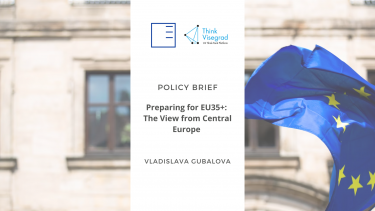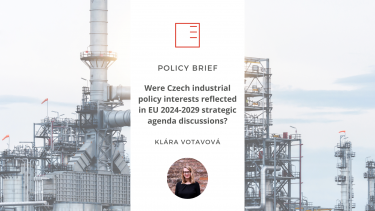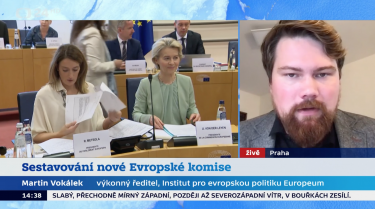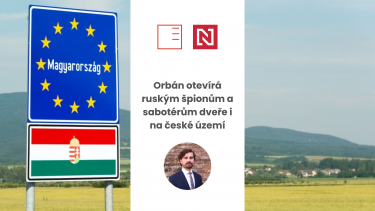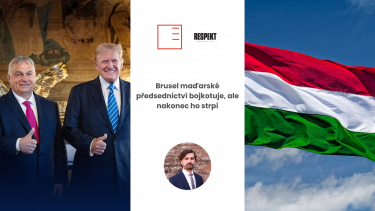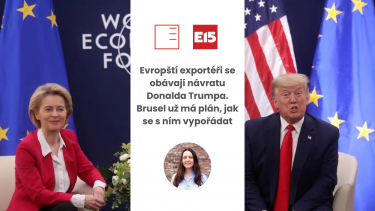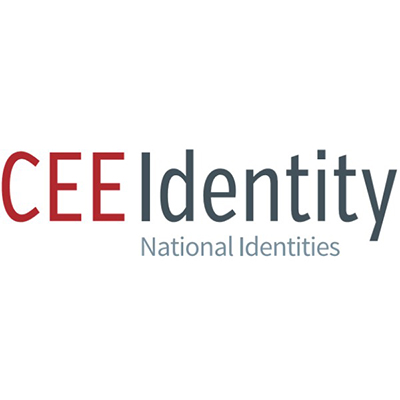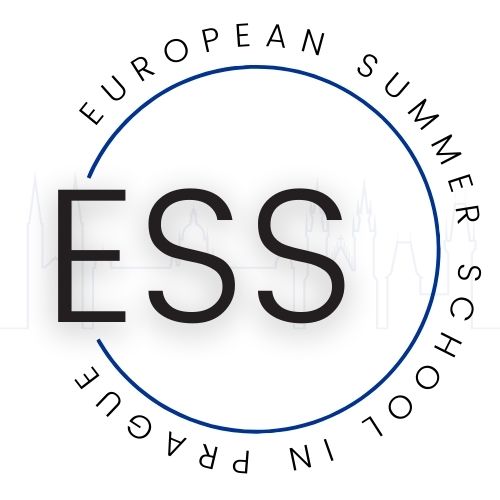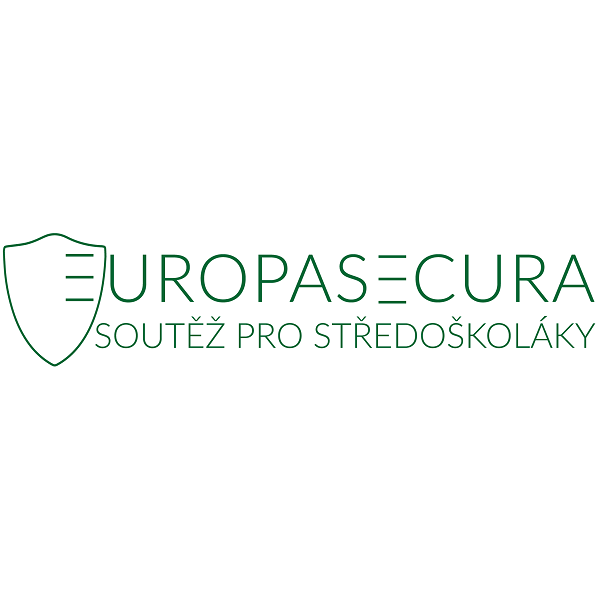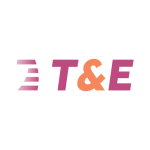
About the organisation
EUROPEUM is an independent think-tank focused on the European integration process. We conduct original research and organise public activities. We also formulate new ideas and recommendations to improve domestic and European policy.
Events
Debate: 25 years in NATO - what has membership given to the Czech Republic?
We invite you to the second regional debate within the 25th anniversary of the Czech Republic's accession to NATO! Membership has brought benefits to the Czech Republic, but it also comes with a number of obligations. What is the importance of this alliance for us? And what do you think about NATO? Come to Ústí nad Labem to discuss these and other questions.
Show more
Election night on the results of the European Parliament elections
We invite you to the event organized by the European Parliament Office in the Czech Republic, EUROPEUM Institute for European Policy and STEM Institute for Empirical Research. The evening will include two debates on the evaluation of the European Parliament and what challenges await the new one and the European elections and the future of Europe. Speakers include former MEP Pavel Telička and Vendula Kazlauskas from the Association for International Affairs. More information and a detailed programe of the evening can be found below.
Show moreCafé Evropa | Debate on the European Parliament elections
We invite the participants of the Scout Festival Obrok 2024 to the next in the series of regional debates Café Evropa on the European Parliament elections. We will give participants an insight into how the European Parliament works, why it is important to come to vote on 7 and 8 June, and also present the values of the European Parliament candidates.
Show moreRevivEU | Should we fear for the economic future of Europe?
We invite you to a public podcast recording focusing on the discussion of the impacts of the COVID-19 pandemic on European industrial policy and its potential consequences for the Czech economy and society. We will discuss the new technological dynamics resulting from the pandemic and explore ways in which the European Union can respond to technological competition with the USA and China.
Show moreProjects
Think Visegrad conference - EU Enlargement Forum
On 10 and 11 April 2024, Prague will host a two-day conference entitled "20 Years of Reuniting Europe's East and West", organised by EUROPEUM Institute for European Policy in cooperation with the Ministry of Foreign Affairs as part of the Think Visegrad platform and the project (Re)uniting the East and West: Reflections on the 2004 EU enlargement (REWEU) supported by the International Visegrad Fund and the European Commission. The programme will also include the second edition of the EU Enlargement Forum.
Show more
Preparing news media in Bosnia and Herzegovina and Serbia for the digital age
The project aims to equip civil society organisations in Bosnia and Herzegovina and Serbia with comprehensive knowledge of media pluralism, media freedoms, and access to information necessary in the digital transition of the news media sector.
Show more
Newsletter 2024
Here you will find all our newsletters for 2024. Don't forget to subscribe to keep up to date with what's happening at EUROPEUM Institute.
Show more PDFEnd-of-life management of the automotive industry and the opportunities for Czechia
After three successful projects focusing on the decarbonization of the Czech automotive industry, the Green Europe team of EUROPEUM in collaboration with the Institute of Circular Economy (INCIEN) is broadening its focus and taking a more circular approach. This project will focus on better lifecycle and end-of-life management of materials used in vehicles and batteries. The collaboration will be split into two research areas.
Show more

Articles and publications
Policy paper | Czechia and NATO: Building a more capable, connected and credible European pillar
CEE allies are key to building the capabilities-based, European Pillar NATO needs to enact genuine burden shifting and secure the alliance’s future. Dr Benjamin Tallis shows how Czechia can build on recent progress in defense procurement and increase its influence by prioritising the six elements Euro-NATO needs: core national war-fighting capabilities, logistics, military mobility, strategic enablers, air defence and long-range strategic strike.
Show morePolicy paper | Managing imperial decline: a new EU policy towards Russia
Russia's full-scale invasion of Ukraine in February 2022 has shattered the post-Cold War international order built upon East-West interdependence and cooperation. The European Union (EU) - which had tried to pursue a strategic relationship with Russia after the collapse of the Soviet Union in 1991 - must now adapt to the geopolitical reality of Russian neo-revisionism. Hugo Blewett-Mundy, an Associate Research Fellow at EUROPEUM Institute, identifies four areas where the EU's policy towards Russia could evolve to confront this emerging security situation in Europe.
Show morePolicy Brief | Preparing for EU35+: The View from Central Europe
Despite the historical support of EU enlargement policy by the Visegrad Four (V4), these Central European states are now faced with the challenge of reconciling their stances with the new realities of the process. As Ukraine and Moldova opened their accession negotiations, the EU seems to be torn on the questions associated with the future enlargement(s) - institutional reforms and changes within the EU budget. Transitioning from economic beneficiaries to potential contributors, the V4 states must evaluate the potential political and economic impacts of new members on both the EU and their domestic levels. Writes and proposes recommendations Vladislava Gubalova from GLOBSEC.
Show morePolicy Brief | Were Czech industrial policy interests reflected in EU 2024-2029 strategic agenda discussions?
In light of the recent return of industrial policy to the global and EU stage, this policy brief outlines how Czech interests in this policy were reflected in the debates leading up to the adoption of 2024-2029 EU strategic agenda. First, it strives to define Czech industrial policy interests, outlining two alternative approaches to how they can be perceived. The liberal approach follows the long established consensus, according to which Czechia – as a very open, export oriented economy – should promote above all a seamless Single Market and free trade. Writes EUROPEUM Institute researcher Klára Votavová in her Policy Brief.
Show more- Policy paper | Czechia and NATO: Building a more capable, connected and credible European pillar
- Policy paper | Managing imperial decline: a new EU policy towards Russia
- Policy Brief | Preparing for EU35+: The View from Central Europe
- Policy Brief | Were Czech industrial policy interests reflected in EU 2024-2029 strategic agenda discussions?
In the media
ČT24 | Most countries have presented their candidates for European Commissioner, none have put forward two names
Most EU member states have already presented their candidates for the position of European Commissioner, but none have complied with the request of European Commission President Ursula von der Leyen to propose two names. Ten countries have yet to nominate anyone, while the Czech Republic announced the nomination of Jozef Síkela last week. Which nominations are worth paying attention to? Is it mandatory for states to propose two candidates? On what basis does von der Leyen decide the composition of the Commission? And what are the chances that the Czech Republic will secure an economic portfolio? Martin Vokálek, Executive Director of EUROPEUM Institute, comments for ČT24.
Show more
Deník N | Orbán Opens Doors to Russian Spies and Saboteurs in Czech Territory
Viktor Orbán has recently stirred controversy in the EU by allowing Russian and Belarusian citizens to enter Hungary without controls. This move, which simplifies their movement within the Schengen Area, has raised concerns about security threats and pressure on European states. What impact might Orbán's policy have on Europe's security, and how are EU institutions responding? Viktor Daněk, Deputy Director of EUROPEUM Institute, discusses the situation for Deník N.
Show moreRespekt | Brussels Boycotts Hungarian Presidency but Will Ultimately Tolerate It
Brussels is boycotting Hungary's presidency due to Viktor Orbán, who during his tour of Kyiv, Moscow, and Beijing claimed to be working for peace, even as his actions coincided with Russia's attack on a children's hospital in Kyiv. His mission was sharply criticized by European leaders, and the EU has distanced itself from his actions, with member states agreeing to boycott informal meetings in Hungary. Could Brussels take further measures? Viktor Daněk, Deputy Director of EUROPEUM Institute, comments for Respekt magazine.
Show moree15 | European exporters fear a return of Donald Trump. Brussels already has a plan to deal with it
If Donald Trump wins the upcoming U.S. presidential election, trade relations between the European Union and the United States could face serious challenges next year. Trump has promised to impose a universal ten percent tariff on all goods imported into the American market. Although his rhetoric is primarily aimed at China, such a tariff would also significantly impact European manufacturers. Is the EU preparing for the possibility that Trump could become president again and implement this measure? How would European companies be affected if the next U.S. president were Democrat Kamala Harris? Kateřina Davidová, a senior researcher at EUROPEUM Institute, comments on this topic for e15.
Show more
- ČT24 | Most countries have presented their candidates for European Commissioner, none have put forward two names
- Deník N | Orbán Opens Doors to Russian Spies and Saboteurs in Czech Territory
- Respekt | Brussels Boycotts Hungarian Presidency but Will Ultimately Tolerate It
- e15 | European exporters fear a return of Donald Trump. Brussels already has a plan to deal with it
Our team
Newsletter
Staroměstské náměstí 4/1
Prague 1 - Staré Město
110 00
tel.: +420 212 246 552
email: europeum@europeum.org
https://www.europeum.org
